Jos Gommans
Professor
- Name
- Prof. dr. J.J.L. Gommans
- Telephone
- 071 5272167
- j.j.l.gommans@hum.leidenuniv.nl
- ORCID iD
- 0000-0001-9620-403X

Jos Gommans is a historian with expertise on the early modern history of South Asia in its global interactions with the outside world of Central Asia, Southeast Asia and the European colonial empires.
More information about Jos Gommans
News
-
 NWO funding for three new humanities PhD students
NWO funding for three new humanities PhD students -
 India in the Making of the Global Esoteric: 1200-2000
India in the Making of the Global Esoteric: 1200-2000 -
 New collaboration project will make the VOC archive of Kerala more accessible
New collaboration project will make the VOC archive of Kerala more accessible -
 Jos Gommans guest curator exhibition 'India and the Netherlands in the Age of Rembrandt'
Jos Gommans guest curator exhibition 'India and the Netherlands in the Age of Rembrandt' -
 Erasmus Training Centre in Jakarta promotes exchange of students and academics
Erasmus Training Centre in Jakarta promotes exchange of students and academics -
 What kept Eurasian empires together?
What kept Eurasian empires together?
Books and publications
Jos Gommans is a historian with expertise on the early modern history of South Asia in its global interactions with the outside world of Central Asia, Southeast Asia and the European colonial empires.
Spreekuur / Office hours
Na afspraak / By appointment
Inaugural lecture
Stille onzichtbare streng (in Dutch)
Fields of interest
History of South Asia, Global History, Colonial History, Dutch Empire (VOC), History of Central Asia, History of Southeast Asia, Indian Ocean Studies, Cultural Encounters, Cosmopolitanism.
Research
Jos Gommans (1963) studied history in Nijmegen and Leiden. His PhD-thesis focused on the eighteenth-century horse trade between Central Asia and India which created an extensive informal empire dominated by Rohilla and Bangash Afghans (The Rise of the Indo-Afghan Empire, 1710-1780, Leiden: Brill 1995; republished in paperback at Delhi: Oxford University Press 1999 and Manohar Publishers in 2018). It gained new insights into the ecological and geographical background of the long-term interaction between the Indian subcontinent and Central Asia. It culminated in his monograph Mughal Warfare: Indian Frontiers and Highroads to Empire, 1500-1700 (London: Routledge 2002) which offered a fresh geopolitical interpretation of the process of Mughal state-formation. More recently, his work on the Afghan and Mughal empires in South Asia triggered a global comparative enquiry into the legacy of the Turco-Mongolian warband that was published in The Indian Frontier: Horse and Warband in the Making of Empires (London: Routledge, 2018).
Since July 2011 Gommans occupies the Chair of Colonial and Global History at Leiden University. As a result, the early modern cultural encounter between Europe and Asia became an important part of his research agenda. Earlier he had already initiated the archival guide series about Dutch Sources of South Asia (Delhi: Manohar Publishers) and authored two volumes of the Comprehensive Atlas of the Dutch East India Company. In 2012, together with Piet Emmer, he published the monograph Rijk aan de rand van de wereld: De geschiedenis van Nederland overzee 1600-1800 (Bert Bakker) to be followed in 2015 by a work on the same topic, edited with Catia Antunes called Exploring the Dutch Empire: Agents, Networks and Institutions, 1600-2000 (Bloomsbury). An expanded and revised English edition of the first book came out in 2020 as The Dutch Overseas Empire, 1600-1800 at Cambridge University Press.
The surprisingly intimate artistic entanglements between the Netherlands and India were investigated in the richly illustrated The Unseen World: The Netherlands and India from 1550 (Rijksmuseum and Vantilt, 2018). In the wake of this book, he acted as guest curator of the 2019 exhibition “India and the Netherlands in the Age of Rembrandt” at the Chhatrapati Shivaji Marahaj Vastu Sangrahalaya at Mumbai. Interestingly, these art-historical investigations uncovered a long Eurasian continuum of contiguous regions sharing a common legacy of Neoplatonic philosophy. This instigated several articles, together with Said Reza Huseini, on the idea of the philosopher-king in early Mughal India. In these more recent articles, Gommans increasingly explores the intellectual dimension of the political and economic interactions that he investigated earlier. All in all, his work continues to focus on the early modern history of the Indian subcontinent in its manifold entanglements with the outside world, in particular with Central Asia and Europe.
Grants and awards
Throughout the years Gommans supervised major academic projects. From 2011-2016 he was co-leader of the NWO-G Horizon Project on “Eurasian Empires: Integration Processes and Identity Formation”. Since 2012, he is the director of the “Cosmopolis Programme” which offers intensive academic training to (mainly Asian) historians who study the rich Dutch archives on Asia (and Africa). In 2022, he initiated a regional extension of that programme called “Cosmos Malabaricus” which focuses more specifically on to the early modern history of Kerala. Other projects that he coordinated include the LUF-funded programme on Indonesia “The Making of Religious Traditions in Indonesia: History and Heritage in Global Perspective (1600-1940)” and the Erasmus Mundus programme on India “IBIES (Interdisciplinary Bridges for Indo-European Studies), both until 2018. At present, he directs an archival project on the Dutch factory in Hirado based at Nichibunken, Japan, funded by the Ailion Foundation (IAAF). In the past Gommans was editor of the Journal of the Economic and Social History of the Orient and currently serves as the editor-in-chief of the LUP series Colonial and Global History through Dutch Sources.
Curriculum vitae
Jos Gommans is Professor of Colonial and Global History at Leiden University. He publishes primarily on the medieval and early-modern history of South Asia, global intellectual history and Dutch colonial history, including a research guide, two historical atlases, seven edited volumes and four monographs: The Rise of the Indo-Afghan Empire, 1710-1780 (Leiden: Brill 1999), Mughal Warfare: Indian Frontiers and High Roads to Empire (London and New York; Routledge 2002), The Unseen World: The Netherlands and India from 1550 (Amsterdam and Nijmegen: Rijksmuseum and Vantilt 2018) and with Pieter Emmer, The Dutch Overseas Empire, 1600-1800 (Cambridge: Cambridge University Press 2020).
Major publications
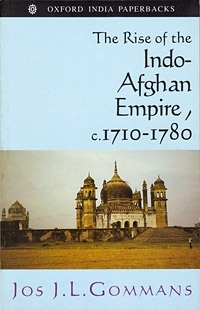
The Rise of the Indo-Afghan Empire 1710-1780 (Leiden: E.J. Brill, 1994) Reprint Pbk: (New Delhi: Oxford University Press, 1999).
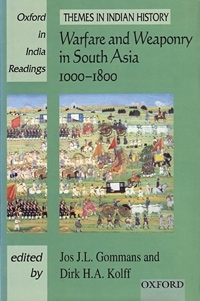
Edited with D.H.A. Kolff, Warfare and Weaponry in South Asia (Delhi: Oxford University Press, 2001); Reprint Pbk 2003.
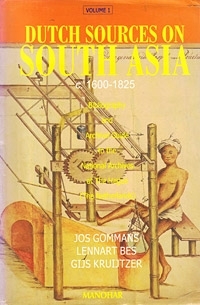
With L. Bes and G. Kruijtzer, Dutch Sources on South Asia c. 1600-1825. Vol. 1:Bibliography and Archival Guide to the National Archives at the Hague (TheNetherlands) (Delhi: Manohar Publishers. 2001).
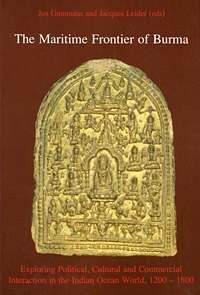
Edited with J. Leider, The Maritime Frontier of Burma: Exploring Political, Cultural andCommercial Interaction in the Indian Ocean World, c. 1000-1800 (Amsterdam: KNAW and Leiden: KITLV, 2002).
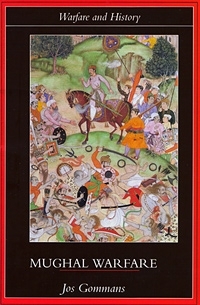
Mughal Warfare: Indian Frontiers and Highroads to Empire 1500-1700 (London: Routledge, 2002). Hbk, Pbk, E-book.
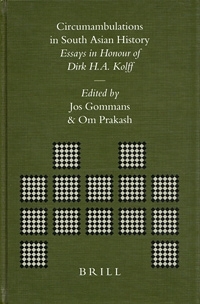
Edited with Om Prakash, Circumambulations in South Asian History: Essays in Honourof Dirk H.A. Kolff (Leiden: E.J. Brill Publishers, 2003).

Edited with Harriet Zurndorfer, Roots and Routes of Development in China and India: Highlights of Fifty Years of The Journal of the Economic and Social History of the Orient (1957-2007) (Leiden: Brill Academic Publishers, 2008).
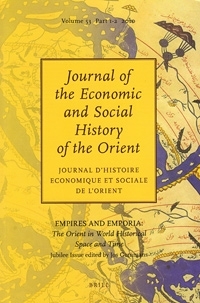
Ed., Empires and Emporia: The Orient in World Historical Space and Time: Jubilee Issue of the Journal of the Economic and Social History of the Orient, 53,1-2 (2010). See also Journal of the Economic and Social History of the Orient.
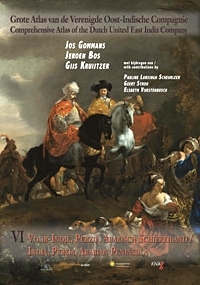
With Jeroen Bos en Gijs Kruijtzer, Grote atlas van de Verenigde Oostindische Compagnie / Comprehensive Atlas of the Dutch United East India Company, Deel VI: Voor-Indië, Perzië en het Arabisch Schiereiland / Part VI: India, Persia and the Arabian Peninsula (Voorburg: Asia Maior / Atlas Maior Publishers, 2010).
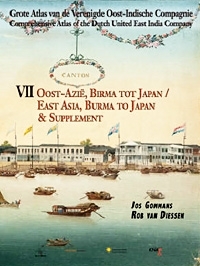
With Rob van Diessen, Grote atlas van de Verenigde Oostindische Compagnie / Comprehensive Atlas of the Dutch United East India Company, Deel VII: Oost Azië, Birma tot Japan / Part VII: East Asia, Burma to Japan (Voorburg: Asia Maior/Atlas Maior Publishers, 2010).
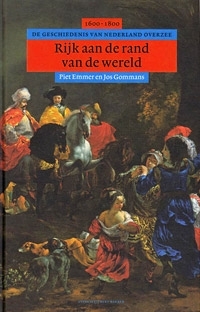
With Piet Emmer, Rijk aan de rand van de wereld: Geschiedenis van Nederland overzee 1600-1800 (Amsterdam: Bert Bakker, 2012).

Edited with Catia Antunes, Exploring the Dutch Empire: Agents, Networks and Institutions, 1600-2000 (London: Bloomsbury Academic. 2015).
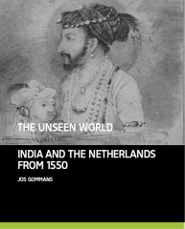
The Unseen World: India and the Netherlands from 1550 (Amsterdam: Rijksmuseum and VanTilt, 2018).
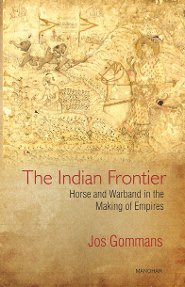
The Indian Frontier: Horse and Warband in the Making of Empires (Delhi: Manohar Publishers, 2018).

The Dutch Overseas Empire, 1600–1800 (Cambridge University Press, 2020).

Philippine Confluence: Iberian, Chinese and Islamic Currents, C. 1500-1800 (Leiden University Press, 2020).
Professor
- Faculty of Humanities
- Institute for History











